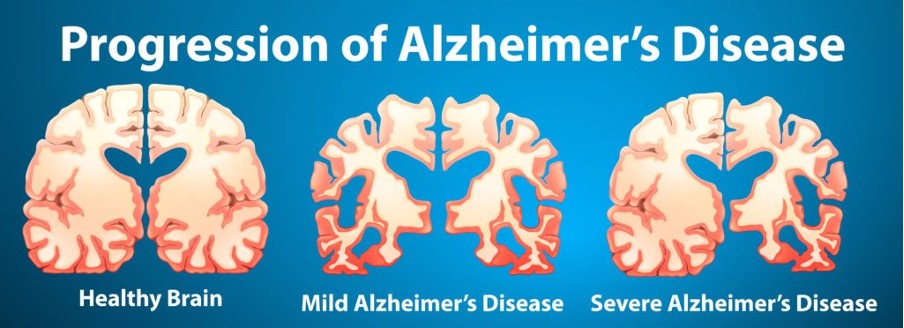Your oral health is more important than you may think. Today, extensive information is available showing a relationship between your oral health and the risk of developing the form of dementia called Alzheimer’s Disease.
In this issue, we will discuss this relationship and dental tips to manage persons who suffer from Alzheimer’s disease.
In many ways, the mouth is the window to your overall health. The condition of your mouth, teeth and gums can often indicate early signs of general disease. Oral bacteria and the inflammation associated with gum disease can lead to the development of conditions like Alzheimer’s and several others.
How Oral Germs Leads to Dementia
Scientists have found that the species of bacteria, called P gingivalis can move from the mouth to the brain. Once in the brain, the bacteria release enzymes called gingipains that can destroy nerve cells, which in turn can lead to memory loss and eventually Alzheimer’s.
Gum disease forms when plaque builds up on the teeth and turns into tartar. This causes bacteria to grow, forming pockets between your gums and teeth. If left untreated, one may become exposed to more serious health issues such as gum recession or tooth loss. This causes bacteria to travel through the bloodstream towards the brain, exposing one to the exact characteristics of dementia.
Caring for an Alzheimer’s Patient’s Oral Health
A person that has Alzheimer’s disease typically experience worsening oral health as their condition progresses. In the earlier stages, they can often continue their daily routines — including brushing their teeth and getting to the dentist. As their condition worsens and their cognitive function decreases, Alzheimer’s patients may forget these routines. This can have detrimental effects on their oral health and overall wellbeing.
Prevention is important when it comes to caring for a patient with Alzheimer’s. If you or someone you knowhas Alzheimer’s, here is some helpful information:
- Provide simple instructions. Explain dental care with short statements and walk the person through the process. For e.g say, “Hold your toothbrush.” “Put paste on the brush.” Then, “Brush your teeth.”
- Use a “mirror what I do” technique. Hold a toothbrush and show the person how to brush. Or, put your hand over the person’s hand and guide the brush. If the person seems agitated or uncooperative, postpone brushing until later in the day.
- Keep the teeth and mouth clean. Very gently brush the person’s teeth, gums, tongue and roof of the mouth at least twice a day, with the last brushing after the evening meal and nighttime liquid medication. Gently place the toothbrush in the person’s mouth at a 45 degree angle so you can massage gum tissue as you clean the teeth.
- If the person wears dentures, rinse them with plain water or with a drop of bleach in water after meals and brush them daily to remove food particles. Each night, remove them and soak in a cleanser or mouthwash. Then, use a soft toothbrush or moistened gauze pad to clean the gums, tongue and other soft mouth tissues.
- Use a soft bristled toothbrush and an interdental cleaner rather than a hard bristled adult’s brush. Be advise that electric dental appliances may confuse a person with Alzheimer’s.
- Be aware of mouth pain. Investigate any signs of mouth discomfort during mealtime. Refusing to eat or strained facial expressions while eating may indicate mouth pain or dentures that don’t fit properly.
Do your part by fighting gum diseases with strong oral health habits, including daily flossing, brushing twice a day and staying current on regular dental check-ups.
There is a profound connection between your overall health and proper oral health care. The ultimate goal is to help people of all ages live healthier lives. You can be empowered to put your health where your mouth is.
Dr. Kendal V. O. Major is Founder and CEO of Center for Specialized Dentistry which is a comprehensive family dental practice operating in Nassau and Freeport. He is the first Bahamian Specialist in gum diseases and dental implants since 1989. He also is a certified Fast braces provider. His practice is located at 89 Collins Avenue, Nassau at (242)325-5165 or [email protected].

Enzymes released from germs from the gums can damage brain nerve cells

Enzymes released from germs from the gums can damage brain nerve cells





